After 48 years of being listed as a Schedule 1 controlled substance alongside drugs like heroin and LSD, marijuana may be shedding its sinister reputation. Ten states have decriminalized it for recreational use, and 23 additional states allow it for medical purposes.
Despite the growing legalization trend at the state level, Washington, D.C. has several big objections to legalizing marijuana at the federal level, including health and addiction concerns.
So what would it take for the government to overcome these objections and lift the national prohibition on marijuana? As a clue for what might happen in the future, consider how alcohol came to be decriminalized in the 1930s.
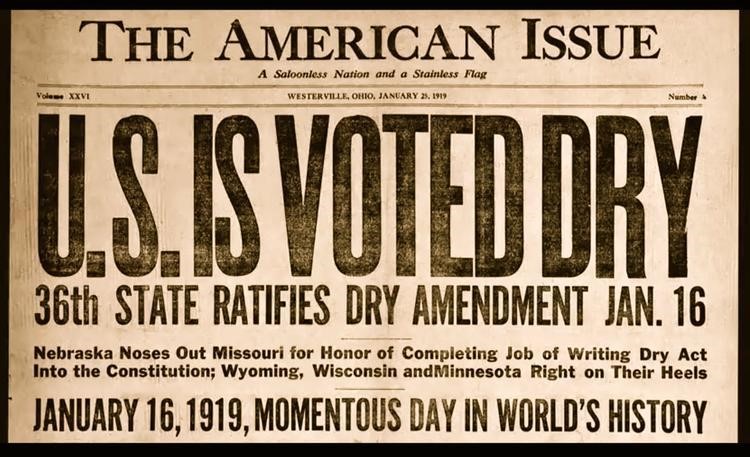
Prohibition advocates had high expectations when the 18th Amendment was ratified in January 1919. The Anti-Saloon League led the drive for prohibition, believing that a dry America would be more honest, prosperous, and harder working. They saw alcohol as a menace that had destroyed families and kept some urban Americans in perennial poverty. Saloons were widely regarded as incubators for trade union organizers and communists, a gathering spot for unwanted immigrants, and the place where crooked politicians bought and sold votes.
In addition to the moral problems brought about by alcohol and saloons, Prohibitionists saw economic upsides to a dry country. One economist predicted it would make the U.S. more productive, raising national output by 10 to 20 percent. Restaurant and theater owners hoped that prohibition would increase public demand for dining out and entertainment, and the government supported prohibition to conserve grain for the troops fighting in World War I.
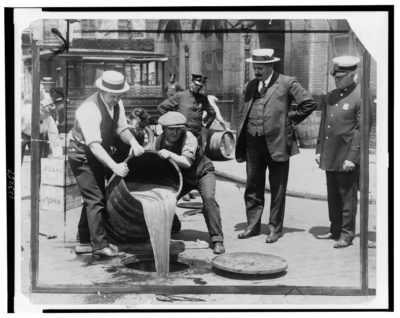
But by 1932, prohibition had lost much of its popular appeal. The saloons might have been closed, but they’d been replaced by speakeasies. New York alone had an estimated 60,000 of them. And bootleg liquor was now available at affordable prices.
Instead of making America more moral and law-abiding, Prohibition had created opportunities for organized crime to thrive and led to widespread corruption among law enforcement agencies.
Enforcement of the 18th Amendment, spelled out in the Volstead Act, had never been properly funded. The federal government depended heavily on state governments for enforcement, and states didn’t have the resources to pursue all the people involved in making and selling booze. Even non-drinking Americans were losing respect for law enforcement agencies that could not enforce the Volstead Act.
Restaurant and theater owners found that sober Americans were less interested in night life. Many restaurants failed, realizing too late that their liquor sales were the key to their profitability.
Finally, the war had ended in 1918, as had the need to conserve grains for the war effort.
The tide had turned against the 18th Amendment, but it might have remained on the books, even if widely disregarded. What brought about its repeal was the Great Depression. With unemployment hovering around 25%, Americans believed that starting up the distilleries and breweries would help create jobs.
And there was the tax revenue. Roosevelt’s many New Deal programs required lots of money. When prohibition ended alcohol excise taxes, individual income taxes were raised to make up the loss. With repeal, the Treasury Department would keep the income tax and bring back liquor excise tax.
It took the temperance movement nearly a century to achieve nationwide prohibition in America. But when Washington saw an answer to more jobs and more taxes, it took just 11 months to repeal the law.
We see a similar pattern today with cannabis. Repeal won’t be a matter of individual liberties, but of economics. Friends of marijuana are showing how pot will bring sizable tax revenue, with the potential for a million new jobs. The allure of happy, employed voters and full coffers might be too great for many politicians. As with alcohol 85 years ago, when legislators are convinced of the cost benefits of legal pot, they may be more likely to reconsider its place in American society.
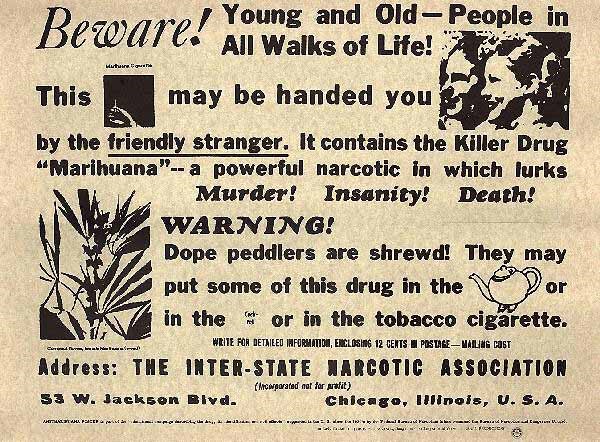
Featured image: Protest against Toronto’s prohibition laws, 1900
Become a Saturday Evening Post member and enjoy unlimited access. Subscribe now
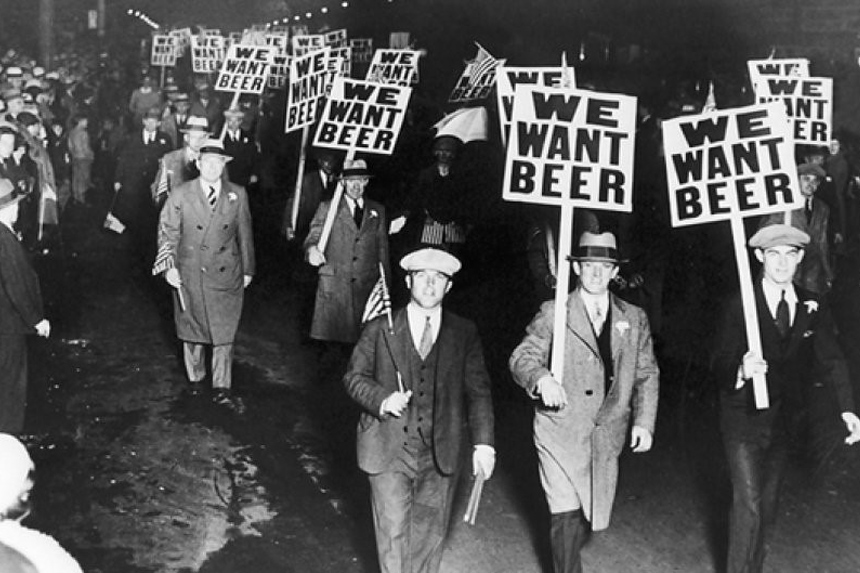
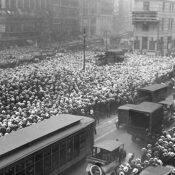
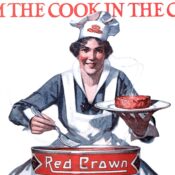

Comments
Things seem to be going pretty well on the state level overall with the legalization so far. It’s proven to be an economic boon in addition to its medicinal benefits. The newer shops opening up are classy joints without the ‘sleaze’ factor and criminal elements of the past. They’re attractive inside and out, and have a wonderful scent about them too.
My main concern is smoking/ingesting pot in a safe responsible manner (like with alcohol) as to not cause accidents and endanger lives. Although I don’t smoke or drink myself, I don’t mind the scent of pot at all when I do get whiffs of it. Regular cigarettes smell like the poison they are.
In the increasingly unlivable California today, you have to have a coping mechanism that works best for you. For a lot of people pot seems to be the answer. Some friends have expressed concerns about it, and to them I say, don’t drive or operate machinary under the influence and use it in moderation. Otherwise if it makes them happy Jeff, it can’t be that bad.